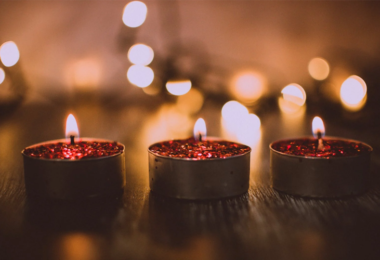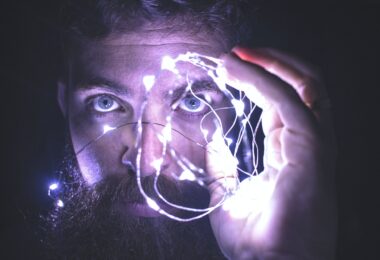We go to sleep every night to recharge and prepare ourselves for the coming day.
But most people don’t know what happens to their body while they sleep.
They tend to think of sleep as a restful, inactive and quiet time.
However, this is not quite the case… and if you’ve ever wondered what happens while you’re in la-la land, keep watching!
Here are 15 things that happen to you while you sleep.
1. Your Body Slows Down.
When you sleep, some parts of your body, such as your immune system, go into overdrive.
The rest however, slows down. Your body temperature drops, your blood pressure lowers, and your breathing rate goes way down.
Your brain waves slow down as well, with occasional sudden bursts, and your heart rate lowers to a slow steady pace. Even your kidneys slow down!
This is particularly important, because it keeps you from having to pee while you’re asleep. This is why in the morning, you usually have to pee, and the color of your urine is so dark.
2. You Become Paralyzed.
You probably heard of sleep paralysis, but the body becoming paralyzed doesn’t just happen to people with this often frightening condition.
When we sleep, we hit a point of rest called REM, which stands for Rapid Eye Movement, and it’s the level of sleep where most of our dreams happen.
During this phase, your body becomes unable to move. You freeze up, in complete muscle paralysis!
People with sleep paralysis just happen to experience this while they are still conscious, which can be incredibly terrifying. But why do we do this? Apparently, to keep us safe.
Since dreams occasionally make us move around if they’re particularly vivid, we could potentially hurt ourselves. To keep us from harming ourselves and others, our brain produces two strong chemicals which mix together and send signals to our body to stop moving.
3. Your Eyes Move.
As I just mentioned, during the REM stage your muscles become paralyzed. However, during this part of sleep, there’s a part of you that’s always moving, and that’s your eyes!
The brain, during this area of rest, acts and looks like it’s awake, even though you’re in deep sleep. Your eyes also act like you’re awake, and dart back and forth, moving and looking everywhere.
However, the whole time this happens, your eyelids remain closed, but others can actually see the eye movement under your lids!
4. Your Sense Of Smell Stops Working.
Again, when you’re in deep sleep, certain parts of your body slow down, and even stop working.
One of the things that stops is your sense of smell! This means, that in the deepest parts of sleep, you won’t notice if your partner lets a stinky fart loose, or if something else starts smelling in the house…
Unfortunately, this can also have a potentially dangerous effect. For example, if your house were to catch fire, your dreamy slumber might keep you from realizing you’re in serious danger.
This is why it’s so important to test your smoke detectors regularly!
5. Your Throat Gets Narrower.
While you sleep, the muscles of your throat relax, your tongue falls backward, and your throat becomes narrow and “floppy.”
As you breathe, the walls of the throat begin to vibrate – generally when you breathe in, but also, to a lesser extent, when you breathe out. These vibrations lead to the characteristic sound of snoring.
The narrower your airway becomes, the greater the vibration and the louder your snoring. If you have issues with your tonsils or sinuses, the snoring gets even worse.
6. You Randomly Flail Around.
When your body isn’t kept paralyzed while you enter REM sleep, it sometimes likes to move around.
And no, that’s not just talking about sleep walking or sleep talking… Instead, many people experience periodic limb movement as they dream. This happens specifically when you’re entering very deep sleep or dreaming about something particularly vivid.
It results in sudden, uncontrollable flexing and retracting of your muscles, which makes you flail and kick.
This can be particularly problematic for anyone sleeping next to you, and can result in bruises if you’re sleeping in a rather confined space.
7. You Are Jerked Awake.
Have you ever felt like you were falling, or suddenly jerked awake for no reason at all? This is actually a natural and common part of falling asleep, and most of us have experienced it.
The involuntary muscle twitches in our limbs or through our entire bodies are called hypnic jerks or sleep starts. And no one really knows what causes them…
Some believe that your body is preparing for the changes it will go through when you’re asleep. While others believe that your brain confuses falling asleep with actually falling and tries to keep you awake.
8. Your Brain Goes Into Cleaning Mode.
Your brain is active both day and night, but sometimes it needs a little time to tidy up the place, and sleep is the best time to do that.
Studies show that waste removal systems in the brain happen to be more active as you sleep, particularly in REM sleep. This means that the brain is better at clearing away toxic byproducts that might build up and cause health problems.
During this time, your brain also sorts and stores information accumulated during the day. It tosses out things it believes we don’t need to remember, and keeps what we do.
9. You May Hear Explosions.
As strange as this sounds, some people hear explosions when they are asleep, like a crash or a bang that sounds almost like a gunshot. This condition has been named exploding head syndrome.
It is not a painful experience, but it can be extremely frightening. It usually happens to people above the age of 50, as they are drifting off to sleep.
10. You Shed Your Skin.
We don’t shed our skin like snakes, but during the night, our skin does start to fall off. Every night, your body continues to generate new skin cells, and old skin cells simply fall off.
Every minute you sleep, you’re losing tens of thousands of skin cells, which have to go somewhere… and they often go into your mattress and pillow. If you don’t wash your sheets and pillows regularly, those skin cells can build up in a pretty horrifying way.
It’s even been estimated that one third of your pillow’s weight is made up entirely of your dead skin cells!
11. You Get Aroused.
Throughout REM sleep, your brain is more active because you are dreaming. Because of this, it requires more oxygen to work, and as a result, you end up with extra oxygen flowing to all parts of your body, including your private parts!
Both men and women get aroused while they sleep, and studies indicate that your body does this in order to prevent itself from going into a vegetative state, like a coma.
By reaching a state of arousal, your body ensures that it can reverse the effects of sleep and actually wake up when it needs to, thereby maintaining some connection with the real world.
12. Your Body Restores Itself.
While you are in the deepest stages of sleep, your body produces a hormone known as the human growth hormone.
This hormone is necessary for the growth of your muscles, bones, and tissues when you are young; and then for repair and restoration once you stop growing. So, there is some science behind the concept of beauty sleep!
13. You Get Taller Every Night.
During the day, the pressures of the world weigh heavily on your shoulders. Literally. You have discs in your spine that act as cushions between bone pieces in your back.
During the day, they get slightly compressed by constant movements and the weight of your body. During the night, they rehydrate and decompress, making your spine slightly longer. By the time you wake up, you’ll have gained a little bit of height!
This is especially true if you like to lie on your side, as it takes the weight off your back.
14. You Make Up Crazy Stories.
Some people can’t remember their dreams in the morning, while others wake up remembering a bizarre sequence of events that often seem real.
Many dreams are based in reality, with elements of the person’s thoughts or the events of the previous day featuring prominently in what they dream about. Some people even have recurring dreams, where they experience the same dream either in a short period of time, or over several years.
Psychologists have offered several theories to explain why we dream, but so far there is no consensus.
15. Sleep Texting.
Sleep texting is the new sleepwalking, and it’s a growing phenomenon in which people (usually adolescents and young adults) send text messages while asleep.
Researchers say it’s being classified as a parasomnia, putting it in the same class of sleep disorders as sleepwalking, night terrors, and bed-wetting.
For many sleep texters, the disorder is just as embarrassing as all the rest, especially when the recipient is anyone other than a trusted friend or family member…
Have you ever done this? We’re curious to know!







